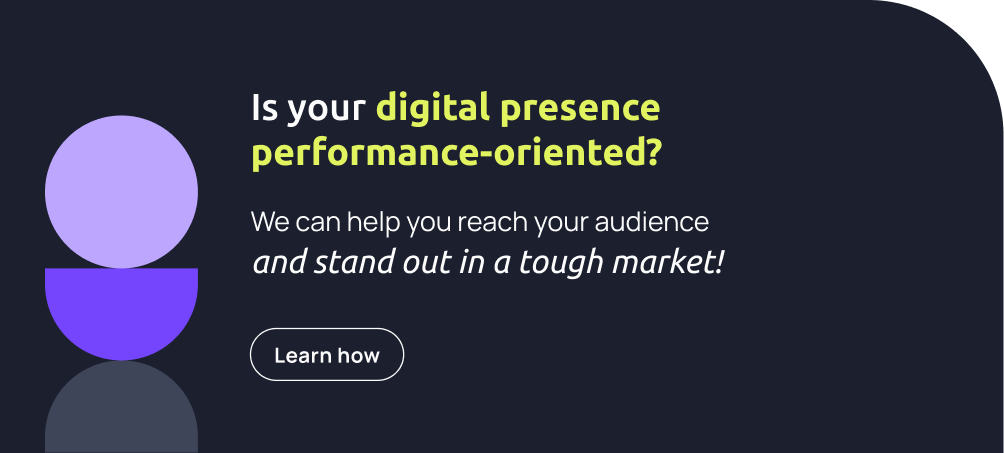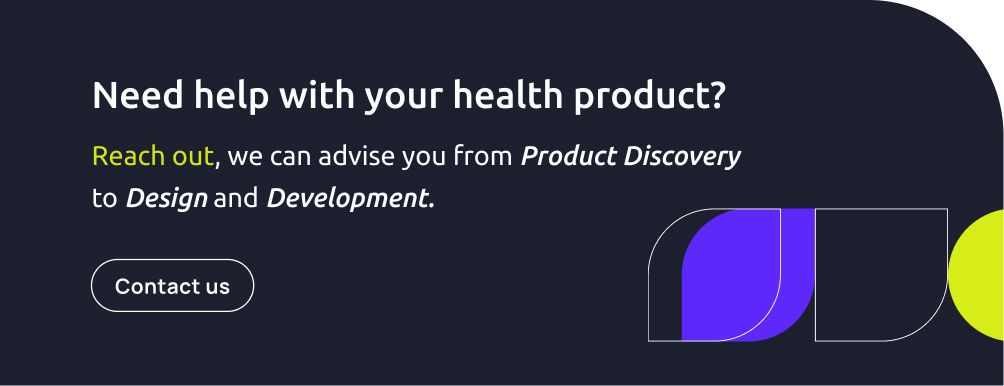As technology becomes more integrated into healthcare, the value of personal connection stands out. While tools and systems continue to advance, what truly makes a difference is the human side of the interaction. A strong personal brand, shaped by our experiences, personality, and knowledge, can set professionals apart. People still prefer to engage with people, not impersonal brands. In a field where trust and empathy are essential, showing who you are can be as important as what you do.
👇 Key takeaways:
- A strong personal brand helps healthcare founders build trust and stand out.
It also increases appeal to investors by showcasing credibility and emotional connection. - Start by researching yourself and your space to define what makes you unique.
Understand your voice, strengths, audience, and how others in your field communicate. - Choose the right platforms and format to share your message effectively.
You don’t need to be everywhere, focus on where your audience is most active. - Your personal brand grows with you and becomes a lasting professional asset.
It supports new ventures, partnerships, and thought leadership beyond any single business. - Consistency and self-awareness are key to long-term success.
Track progress, stay true to your message, and keep learning as your brand evolves.
Table of Contents
- What Personal Branding Is and Why Everyone Talks About It
- Why It Should Matter to You, Entrepreneur/Founder
- How to Build a Personal Brand Step by Step
- Final Thoughts
Before diving deep, let's discuss some myths and preconceptions we need to get out of the window.
- I need to be pretty, young, and charismatic.
These aspects have nothing to do with having a solid brand. It is not about how you look but more about what you have to say and how you say it that will make the difference. Remember the word impact; we will be talking about this a lot. - My product is what matters, not me; I'm just the founder.
Well, yeah, your product is definitely essential, but don't sleep on yourself. Humans invest and buy from humans. We live in an era where people no longer trust government institutions or the media. People trust experts, influencers, founders, and their friends and family. Chances are that you came up with an idea based on your personal experience, which people relate to. - Social media is not my thing.
Have you considered how many other channels are available? Do not worry; finding your voice also means finding the right place for it. You may be better in person, so let's take advantage of that. We will go over this, so don't worry. - I don't want to be a character.
Great!! It is not about being someone you are not; it is about showing and communicating who you are and what you think. Audiences can tell when someone is not genuine, and they often reject copycats. - Others are doing it and saying the same things I can say.
I promise you, everyone is unique and has something to say. Just because they are out there does not mean you have no space.
So, with all this behind us, let's get into what it all really means and actionable steps for how you can start right after reading this.
What Personal Branding Is and Why Everyone Talks About It
Let's start with the basics:
A brand is a unique combination of assets (products, services, values, personality, and history) that form a value proposition. This value proposition resonates with specific emotions, desires, and needs. This is why people buy it. Marketing's role is to find the most effective way to communicate this and connect it with the people who align with its values and offerings. In other words, put it out there so people know it exists and buy it!
So, when it comes to a personal brand, it would be your special and unique combination of skills, experiences, qualities, and values you want to show to the world intentionally. It is basically the idea you want people to have from you.
Why It Should Matter to You, Entrepreneur/Founder
You may be thinking… "Hey, I do not need this". But let me try to change your mind.
Increasing Investment Appeal
First things first, as I said before, people invest in people. Having a strong brand makes it easier to build emotional connections and differentiate yourself from other entrepreneurs. In marketing, we often talk about communicating the customer's "reasons to believe" so that making an emotional decision (like purchasing something) seems like a rational one. Of course, getting funding is about ROI and numbers, but more often than not, investors search for a gut feeling that helps them decide.
Something worth considering is that as ideas and MVPs evolve, the founding team is far more critical than the idea itself.
Attract opportunities
Never underestimate how sharing your thoughts and ideas can generate everything from new partners to business deals. A personal brand offers a unique way to connect with medical professionals and industry leaders you might never meet. Being active online shows that you're open to networking and can help you attract exciting career opportunities.
Collaborative networking
Interoperability, data security, laws and compliance, and many other issues plague the US healthcare business. Any business finds it challenging to handle these complications on its own. Overcoming these obstacles requires time, resources, and focus, all of which are scarce! Therefore, it is essential to rely on strategic relationships! Building these is way easier if your stance is public. In addition, better results can be achieved from these partnerships.
A platform beyond one business
A personal brand grows with the person, not just the company. If the founder moves on to new ventures, their established audience and reputation follows them, making future launches and endeavors much easier. In other words, the personal brand stays with the founder through every stage of their career whether they launch a new startup, become an investor, advisor, or thought leader in their industry. It’s an asset that compounds over time.
Influencer marketing
In the influencer economy, your personal brand acts as a form of capital. Just as influencers grow their audience and earn opportunities by maintaining a clear, consistent image, healthcare professionals are beginning to harness the same principles to shape and share their own stories.
A well-crafted personal brand reflects your values, showcases your expertise, and highlights what sets you apart. Much like influencers gain traction through authenticity and visibility, you can use their personal brand to help you strengthen your position as a thought leader, and it can even become a new income stream.
How to Build a Personal Brand Step-by-Step
Finding your voice, recognizing your strengths to highlight them, and your weaknesses to tailor your messages accordingly is, in many ways, a process of self-introspection. Building something substantial and meaningful takes great effort, so the first stages may require more effort until you find a comfortable space to work and develop. Having said this, let's go over the main steps to get you started!
Research: know yourself and find a space
Just like any other brand, a certain amount of research needs to be done before even starting. What do you have to investigate and know?
- What is being talked about lately in your space that could spark interest, topics, news, anything you could form your own opinion about
- Who else is out there in your area, and what are they talking about? They are not your competition, but you may find that you share audiences. You can even get fresh ideas and inspiration from them.
Make a plan
What and who: Define a clear message
Defining a clear message implies internal research. You need to know what you want to say and why you are sharing it. Setting an objective and finding a niche: trying to reach everyone often is the same as not reaching anyone at all. So, how do you do this? First, consider what you like and why you are doing this. Make it seasoned and real.
This is your chance to briefly introduce yourself and make a strong impression, whether speaking with a colleague, potential employer, or investor. Think of it like your own personal elevator pitch. It should capture what sets you apart, combining highlights from your experience with a clear sense of where you're headed next, all in a clear, concise way. Make sure to highlight your personality. Do not try to be liked; be yourself.
It might come naturally to talk about medical information, but this can be tricky.
If you share healthcare advice on social media, your followers might take it to heart, even if their health situation differs from yours. It can be risky, as what works for one person may not suit another. It's important to remember that people often look to you as an authority and may follow your advice without considering their own specific needs. A single post (or private message) can influence many. Try to avoid things like talking about your own health choices and your personal life, giving advice, and, of course, it's a no-no to share patient info.
How: voice/tone/image
It is time to define voice and tone, meaning how you will get your message across. Let's get into the definitions to make it a bit clearer.
Voice in healthcare marketing is the brand's consistent personality and character, reflecting how it communicates across all platforms. Whether the communication is professional, empathetic, or authoritative, it stays steady.
The tone is the way the message is delivered, depending on the context. For example, the tone could be more reassuring when addressing patient concerns or more factual when sharing research findings or medical updates.
It might be the time to rethink your visuals as well. If you are just starting out, you don't need anything crazy. Consider a professional photo shoot that can help you get some polished images to get you started.
Where: choosing the right channel
Now that you have an objective, a message, and a way of conveying it, let's think of where that message can be better spread. For a personal brand, there are different channels you can use and you need to consider.
You do not need to be everywhere. That takes time and is not efficient. Prioritize where your audience is already talking and get started there. Having an online presence is a must. Choose your platform wisely. LinkedIn is the easiest one to start on, as it gives you the option to comment, record videos if you want, and generate articles.
Think if you need a personal website. One will help you grow your brand and product as you can showcase it better and make the most out of tools like SEO or a newsletter. If you decide to go through this route, remember that your personal brand website in healthcare should be intentionally designed to speak directly to your audience. Doing this and personalizing your messaging can significantly improve user experience. No one says healthcare professionals and practitioners should be digital marketing experts, so partnering with healthcare marketing experts and a good healthcare software development team is always a good option.

Don't sleep on events! Events are great either to network or if they invite you as a speaker. There are tons of ways to capitalize on this. And hey, a pro tip: Have you heard the phrase "don't meet your heroes"? Well, make sure when people meet you at events, meetings, conferences, and such that you are not faking or being a character.
When: make a plan and a calendar
This is the most fun part! Here, you get to get creative and start generating your content ideas. Think of what you want to say, create titles, and start writing your posts, blogs, articles, or scripts! Once you have a solid amount, you can begin to define when.
Another pro tip: a content plan is not a calendar. A plan may look like something like this:
- Two blog posts per month
- Every Friday, a newsletter
- One podcast every quarter
A calendar is defining what you are going to post within that plan.
Don't forget to track
And now you track! What exactly? How many followers, subscribers, calls, invitations to events you may get. Remember that KPIs for a personal brand are not often measured in monetary terms and will most likely be linked to the objective you set before.
Continuous improvement
Just like product and service brands, personal brands evolve. For this very same reason, it is key to track and measure. This makes it easier to change your path as many times as needed to feel comfortable and find the right audience. Just do not compromise consistency.
And do not sleep on learning new things. You are your biggest asset, and the more you learn, the stronger and more updated message you can share.
Final Thoughts
For healthcare entrepreneurs, building a personal brand is about establishing credibility in an industry where trust and expertise are non-negotiable. A well-crafted brand helps position you as a thought leader, attract strategic partnerships, and drive engagement across clinical and tech-focused audiences. It enables you to cut through the noise, showcase your unique value proposition, and connect more authentically and scalable with patients, investors, and collaborators.
Your personal brand is a living, evolving part of your professional identity. It will grow with you, supporting future ventures, partnerships, and your role as a thought leader beyond any single business. Stay consistent, be self-aware, and adapt as you go. The more intentional you are, the more lasting and impactful your brand will become.
I hope this post helps you take the first step into this fascinating world. And hey... if you ever need a hand, we're here.


